Keunchan Park
MvFS: Multi-view Feature Selection for Recommender System
Sep 06, 2023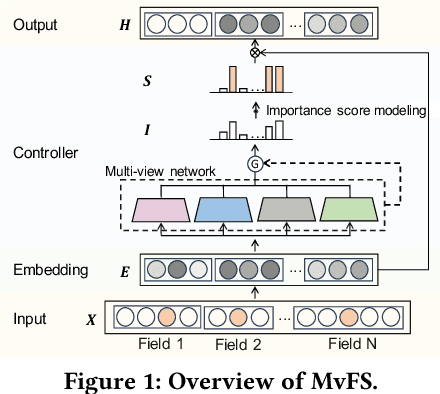

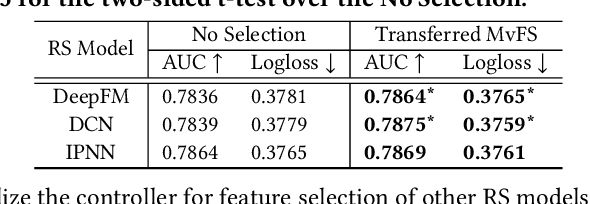
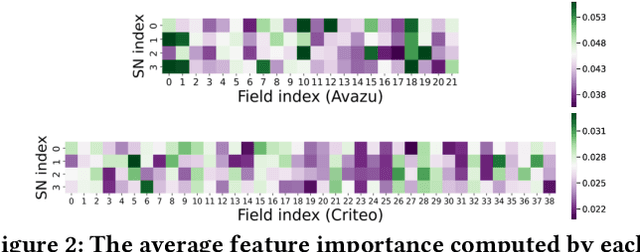
Abstract:Feature selection, which is a technique to select key features in recommender systems, has received increasing research attention. Recently, Adaptive Feature Selection (AdaFS) has shown remarkable performance by adaptively selecting features for each data instance, considering that the importance of a given feature field can vary significantly across data. However, this method still has limitations in that its selection process could be easily biased to major features that frequently occur. To address these problems, we propose Multi-view Feature Selection (MvFS), which selects informative features for each instance more effectively. Most importantly, MvFS employs a multi-view network consisting of multiple sub-networks, each of which learns to measure the feature importance of a part of data with different feature patterns. By doing so, MvFS mitigates the bias problem towards dominant patterns and promotes a more balanced feature selection process. Moreover, MvFS adopts an effective importance score modeling strategy which is applied independently to each field without incurring dependency among features. Experimental results on real-world datasets demonstrate the effectiveness of MvFS compared to state-of-the-art baselines.
On the Overlooked Significance of Underutilized Contextual Features in Recent News Recommendation Models
Dec 29, 2021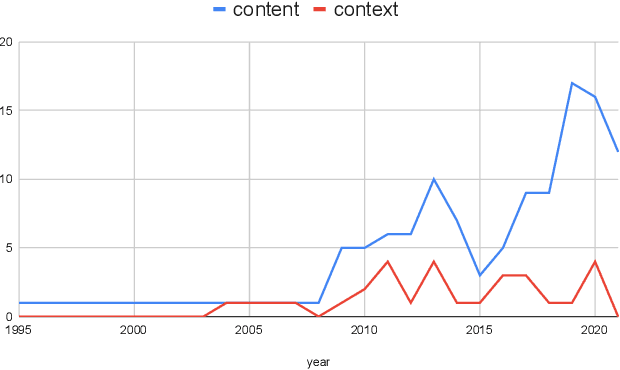
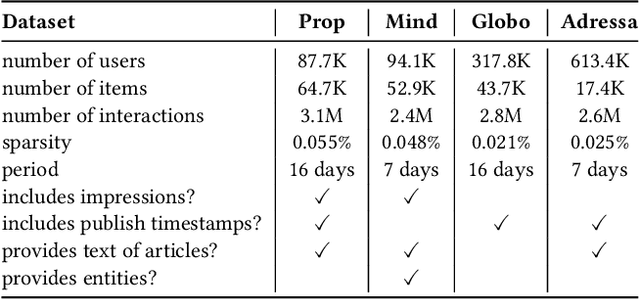
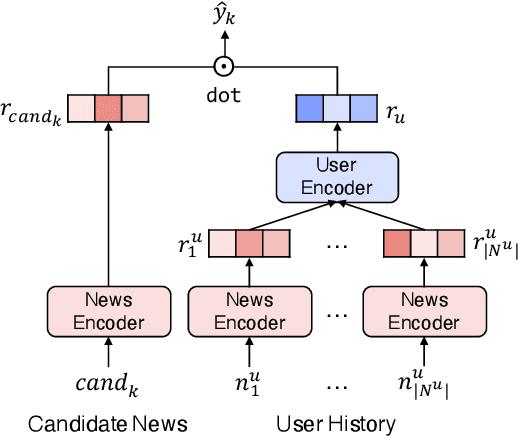
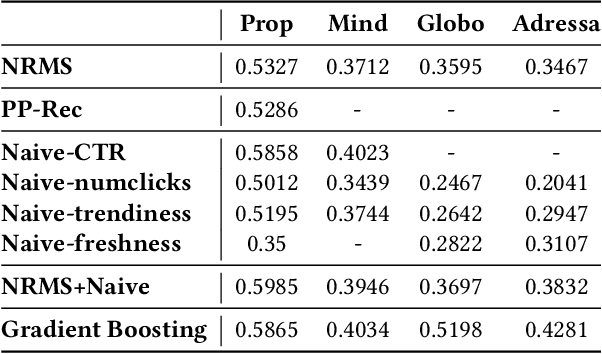
Abstract:Personalized news recommendation aims to provide attractive articles for readers by predicting their likelihood of clicking on a certain article. To accurately predict this probability, plenty of studies have been proposed that actively utilize content features of articles, such as words, categories, or entities. However, we observed that the articles' contextual features, such as CTR (click-through-rate), popularity, or freshness, were either neglected or underutilized recently. To prove that this is the case, we conducted an extensive comparison between recent deep-learning models and naive contextual models that we devised and surprisingly discovered that the latter easily outperforms the former. Furthermore, our analysis showed that the recent tendency to apply overly sophisticated deep-learning operations to contextual features was actually hindering the recommendation performance. From this knowledge, we design a purposefully simple contextual module that can boost the previous news recommendation models by a large margin.
 Add to Chrome
Add to Chrome Add to Firefox
Add to Firefox Add to Edge
Add to Edge